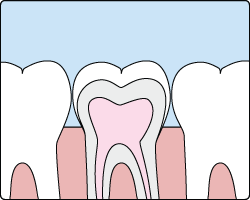Sealants

Sometimes brushing is not enough. Narrow grooves and pits in teeth- particularly molar teeth-are often inaccessable by a manual toothbrush and can leave your tooth vulnerable to decay. Sealants on your teeth provide an extra line of defense against tooth decay.
A dental sealant is a plastic resin that bonds to the deep grooves in your tooth's chewing surface. When sealing a tooth, the grooves of your teeth are filled and the tooth surface becomes smoother -- and less likely to harbor plaque. With sealants, tooth brushing becomes easier and more effective against tooth decay.
As a preventative measure, sealants are usually applied to children's teeth as soon as the permanent molars erupt. Sealing teeth early is key as placing a sealant is no longer possible once a tooth develops tooth decay. Adults with healthy teeth can still benefit from sealants. It is more common to seal permanent teeth rather than primary (baby) teeth, but every person has unique needs. Your DDA dentist will recommend sealants on a case by case basis.
Sealants generally last 3 to 5 years. However, it is fairly common to see adults with sealants still intact from their childhood. A dental sealant only provides protection when it is fully intact, so you must let your dentist know if your sealant comes off.


